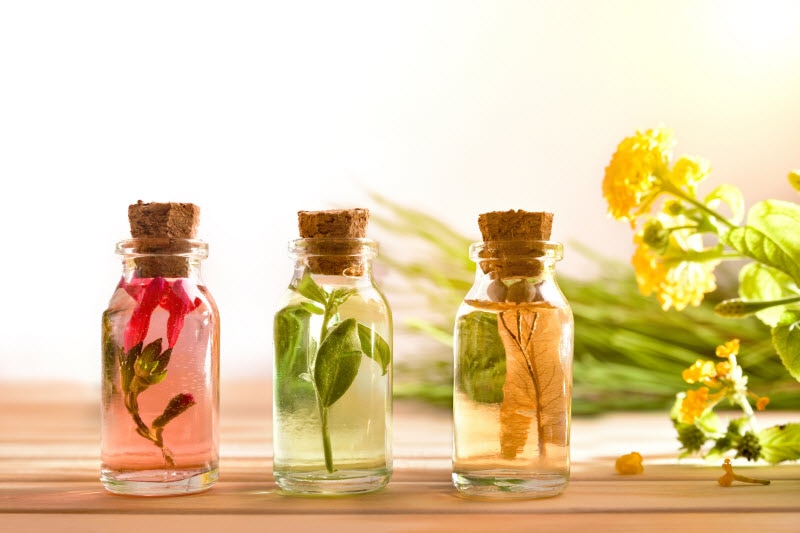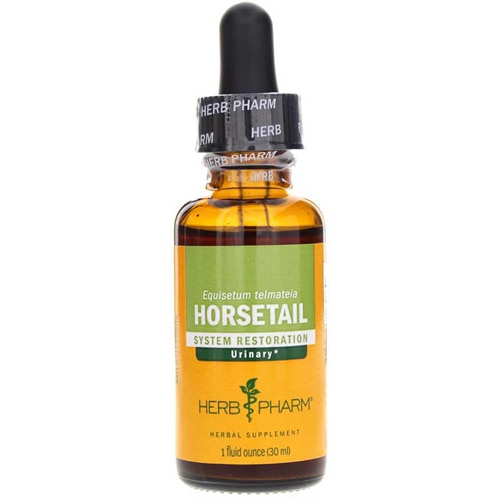As you probably already know, the average hair care product is loaded with chemicals, including sulfates, phthalates, parabens, synthetic fragrances, preservatives and more. Instead of worrying about these
controversial ingredients, you can either seek out
natural hair care supplies – or, go a step further, and make your own.

While they aren’t a replacement for a sudsy shampoo, herbal hair rinses are easy-to-make, do-it-yourself hair treatments. Using herbs and other natural ingredients, they do everything from creating luster and shine to soothing an itchy scalp to speeding hair growth.
The best part? You choose the herbs and ingredients, giving you complete control over what you’re putting on (and eventually in, by way of absorption through skin) your body.
Best herbs for an herbal hair rinse
Whether you choose dried, fresh, tea bags or essential oils, the following herbs are great for hair. You can mix and match them to create a concoction that makes you (and your hair) shine.
Rosemary
Rosemary is a hair rinse staple. This herb is well known for its anti-inflammatory properties, as well as for increasing circulation and aiding in nerve rejuvenation. This makes it ideal for hair growth, as well as soothing itchy scalps and relieving dandruff.
Nettle
Stinging nettle has many health benefits and has been used in traditional medicinal practices as a hair loss treatment. It’s antioxidant-rich, helps fight inflammation and is antibacterial. Rich in silica, sulfur, chlorophyll and vital nutrients, nettle helps relieve dandruff and promotes thicker, stronger, more luscious locks.
Horsetail
Horsetail contains antioxidants and high concentrations of silica. Silica helps boost collagen production and helps to strengthen hair and reduce breakage.
Calendula
Calendula is a healing herb primarily used for wound care and skin concerns. For hair, it rehydrates dry tresses, soothes itchy, irritated scalps, increases circulation and promotes collagen to strengthen hair and aid in hair growth.
Chamomile
Chamomile is an herb known for its healing and soothing properties.
Chamomile is antioxidant-rich, antiseptic and aids in cell and tissue regeneration. It helps prevent dandruff and calms scalp issues.
*Note - Chamomile lightens hair, so it’s good for blond hair or to create highlight effects in all hair colors.
Sage
Sage is another healthy hair powerhouse. It contains a compound called beta-sitosterol that’s been investigating for beating baldness. It stimulates circulation, encourages hair growth, relieves dandruff and thickens and tones dry, thinning hair. You can also use a few drops of
sage essential oil mixed with a few drops of rosemary and neem essential oils in a carrier oil like olive oil or coconut and apply it directly to the scalp for extra potency and hair regeneration.
*Note - Sage darkens hair, so it’s better for darker-colored hair or those wanting dark highlights and to darken up their greys.
Neem
Neem has been used in Ayurvedic medicine for centuries. With abundant fatty acids, vitamin E, antioxidants, and multiple other nutrients, this hair and skin superstar has many uses. It strengthens the hair shaft, protects against hair loss, prevents premature greying, soothes scalp issues. It also treats dandruff and lice. It comes in many forms, including fresh or dried leaves,
liquid neem extract, powders, pastes or oil.
Another key ingredient
Apple cider vinegar
Apple cider vinegar is a fermented liquid used both internally and topically for a variety of health reasons. A few of its hair benefits are that it helps to regulate hair and scalp pH, closes the hair shaft to minimize breakage and removes residue left behind by other products that clog pores and diminishes the look and feel of healthy hair. It’s an incredible ingredient boost to herbal hair rinses and can be used on its own in the form of an apple cider vinegar rinse.
How to make an herbal hair rinse
Now that you know which ingredients are best for hair, choose one to four to create your own herbal hair rinse. To make a hair rinse, add at least one to two teaspoons of each of your herbs to a large mason jar or glass container. (Note: If you’re using fresh, you will need more – start with a quarter cup of fresh leaves or plant parts; if desired, add more.)
Boil one quart of water and pour it over the herbs. Let the herbs brew for at least 4 hours. You can even leave it overnight. Strain the liquid, then add 2 tablespoons of apple cider vinegar to your mixture, along with any essential oils you’d like to include. Mix well, and you are ready to do your hair.
Wash and condition your hair, then get ready to use the rinse.
If you have dry ends, dip them into the mixture before you pour it over your head. Slowly pour the mixture over your head. Massage it into your scalp, and through you’re your hair allowing it to penetrate. Leave in for twenty to thirty minutes. Rinse with cool water. You can also leave it in your hair.
Use your herbal hair rinse once a week, or experiment with using them more often. Play with these and other ingredients to get a feel for which ingredients work best for your hair’s specific needs.
 While they aren’t a replacement for a sudsy shampoo, herbal hair rinses are easy-to-make, do-it-yourself hair treatments. Using herbs and other natural ingredients, they do everything from creating luster and shine to soothing an itchy scalp to speeding hair growth.
The best part? You choose the herbs and ingredients, giving you complete control over what you’re putting on (and eventually in, by way of absorption through skin) your body.
While they aren’t a replacement for a sudsy shampoo, herbal hair rinses are easy-to-make, do-it-yourself hair treatments. Using herbs and other natural ingredients, they do everything from creating luster and shine to soothing an itchy scalp to speeding hair growth.
The best part? You choose the herbs and ingredients, giving you complete control over what you’re putting on (and eventually in, by way of absorption through skin) your body.



